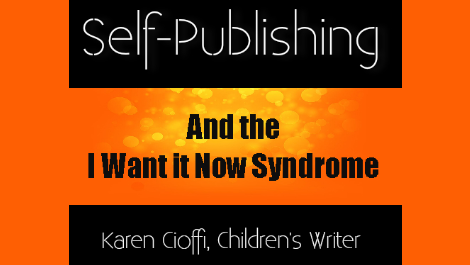(What’s a ‘Wannabe’ Author to Do?)
Self-publishing is a ship everyone wants to sail on. And for good reason. This publishing avenue is quick and cheap.
Yes, self-publishing is fast. There’s no more submitting to a publisher or multiple publishers and waiting for (possibly) months for a response. Will they accept your manuscript that you’ve been working on for months, maybe years? Or will they send you a generic standard rejection letter? Either way, waiting for an acceptance or rejection isn’t fun. On the other hand, self-publishing can be done as soon as your manuscript is ready to go.
There are lots and lots of places to publish an ebook. And you can publish with more than one service. You can also sell the ebook directly from your own site. That’s pretty convenient.
In addition to being a quick process, ebooks are cheap to create and publish. It will cost nothing if you do everything yourself (aside from editing). If you need help, services like Fiverr have people who will help you for a very, very reasonable price. Just be sure of their qualifications.
But . . .
While it’s obvious to see the benefits of self-publishing, these benefits have one particular drawback: everyone thinks they can write a book and self-publish it, whether or not they have the skills to write a book, and whether or not it’s a quality product.
Part of the problem, possibly the main issue, is the ‘I want it now’ syndrome that self-publishing lends itself to. New authors don’t want to take the longer ‘proven’ road of learning the craft of writing and having their manuscripts edited before publishing.
This ‘problem’ does all authors a disservice. It lessens the validity of self-published books as a whole. Readers (buyers) never know if the book they’re buying was done professionally or carelessly slapped together.
So, what’s the solution?
Well, there are three basic strategies to use when thinking of writing a book and self-publishing:
1. Learn the craft of writing.
The first thing a ‘wannabe’ author needs to do is learn the craft of writing. This isn’t to say you must get an MFA, but you should take writing courses. Some online courses are free. And you should belong to writing groups.
Along with this, you should actually be writing. Practice does make better, if not perfect.
Finally, you’ve got to read and read and read in the genre you want to write and in lots of other genres. You especially want to read recently traditionally published books.
This will help you understand what publishers are looking for, what quality work is being published, and how it’s written.
2. Join a critique group.
The second thing is for the author to join a genre-appropriate critique group. Having your manuscript critiqued by others helps with grammar, clarity, storyline, characters… You get the idea. Critique groups help you write your book. Those extra eyes will catch things in your manuscript that you glaze over.
3. Hire an editor.
The third thing the author should do, after the manuscript is as ‘good’ as she can get it, is find a reputable editor and have it edited. It’s easy for an author to think she’s found all the errors in her manuscript, but this is almost impossible to do. As the author, you’re much too close to the work to see it fresh and with unbiased eyes.
Self-publishing is an amazing opportunity for authors, but it needs to be done responsibly. Authors need to consider the readers and the industry when venturing into it.
Instead of being one of the “I want it now” authors, be one of the ‘I want it, but am willing to work toward it’ authors.

I’m a working children’s ghostwriter, rewriter, and coach. I can help turn your story into a book you’ll be proud to be the author of, one that’s publishable and marketable.
OTHER HELP I OFFER:
HOW TO WRITE A CHILDREN'S FICTION BOOK
A DIY book to help you write your own children’s book.
FICTION WRITING FOR CHILDREN eCOURSE
4-Weeks / 8 Sections Guided Self-Study Mentoring Program
WRITERS ON THE MOVE SELF-PUBLISHING SERVICE
Self-publishing help for children’s authors
(Picture books and chapter books)
You can contact me at kcioffiventrice@gmail.com.
MORE ON WRITING FOR CHILDREN
Focus, Determination, and Perseverance = Writing Success
4 Realities New Writers Need to Face
The One Sentence Pitch for Your Manuscript
How Do You Build a Successful Writing Career? (3 Tips)


7 thoughts on “Self-Publishing: 3 Tips to Help You Avoid the ‘I Want It Now Syndrome’”